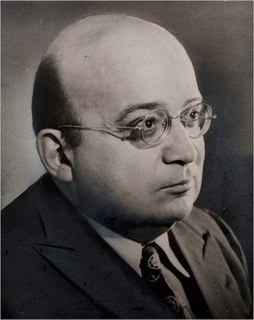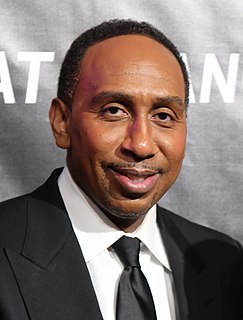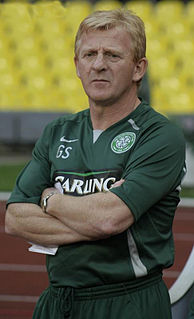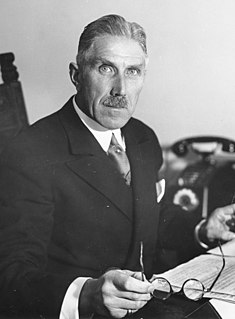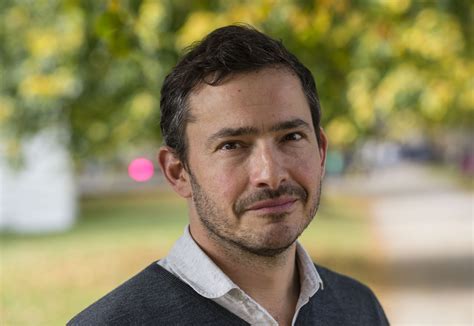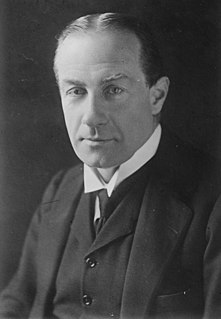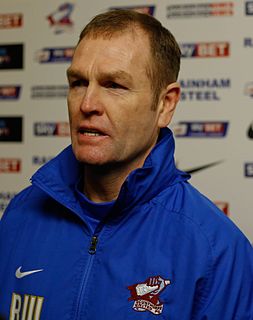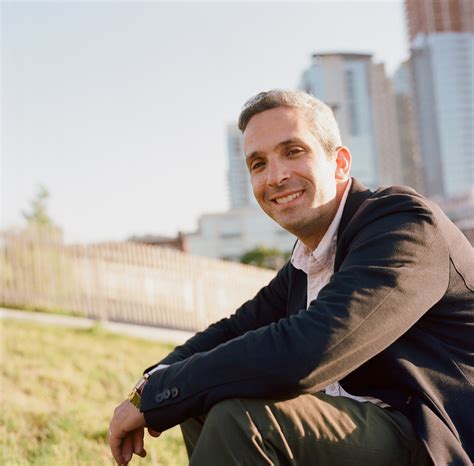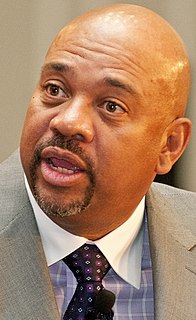Top 1200 Newspapers Quotes & Sayings - Page 18
Explore popular Newspapers quotes.
Last updated on November 22, 2024.
This country needs room to grow and expand. In all my own newspapers I read frightful tales of the shameful atrocities being perpetrated on our Democratic minorities in Maine and Vermont. My patience is almost at an end, and if provoked much further I will place both countries under American protection, even if I have to send in my tourists to start trouble so I'll have to send in a force to restore order.
Unless you listen, people are weazened in your presence; they become about a third of themselves. Unless you listen, you can't know anybody. Oh, you will know facts and what is in the newspapers and all of history, perhaps, but you will not know one single person. You know, I have come to think listening is love, that's what it really is.
I would walk into the Carnegie Library and I would see the pictures of Booker T. and pictures of Frederick Douglass and I would read. I would go into the Savannah Public Libraries in the stacks and see all of the newspapers from all over the country. Did I dream that I would be on the Supreme Court? No. But I dreamt that there was a world out there that was worth pursuing.
An extraterrestrial being, newly arrived on Earth - scrutinizing what we mainly present to our children in television, radio, movies, newspapers, magazines, the comics, and many books - might easily conclude that we are intent on teaching them murder, rape, cruelty, superstition, credulity, and consumerism. We keep at it, and through constant repetition many of them finally get it.
I regret that after 30 years of writing columns in this market, including ten with this newspaper that I love very much, this local conversation has come to an end. However, I believe that if the newspapers of the country pool their resources, we can send an Arnold-Schwartzenegger-style robot back in time to kill the inventor of the Internet, and then our future will be much brighter.
It takes twenty or so years before a mother can know with any certainty how effective her theories have been--and even then thereare surprises. The daily newspapers raise the most frightening questions of all for a mother of sons: Could my once sweet babes ever become violent men? Are my sons really who I think they are?
Think of something you really care about. Then add hour to hour and calculate the fraction of your life that you've actually spent in doing it. And then calculate the time you've spent on things like shaving, riding to and fro on buses, waiting in railway junctions, swapping dirty stories, and reading the newspapers.
There is a hideous invention called the Dewey Decimal System. And you have to look up your topic in books and newspapers. Pages upon pages upon pages…” Uncle Will frowned. “Didn’t they teach you how to go about research in that school of yours?” “No. But I can recite ‘The Battle Hymn of the Republic’ while making martinis.” “I weep for the future.” “There’s where the martinis come in.
News is like the tilefish which appears in great schools off the Atlantic Coast some years and then vanishes, no one knows whither or for how long. Newspapers might employ these periods searching for the breeding grounds of news, but they prefer to fill up with stories about Kurdled Kurds or Calvin Coolidge, until the banks close or a Hitler marches, when they are as surprised as their readers.
However, I think we have to go back to the American bogeyman - we have to understand that this is a country which currently allows American drones to fly over our skies and bomb our people on an almost weekly basis, this is a country that survives on American aid in the billions. Today's headline in the newspapers is about America stepping up arms supplies to Pakistan.
Our media, which is like a planetary nervous system, are far more sensitive to breakdowns than to breakthroughs. They filter out our creativity and successes, considering them less newsworthy than violence, war, and dissent. When we read newspapers and watch television news, we feel closer to a death in the social body than to an awakening.
The Great Depression was going on, so that the station and the streets teemed with homeless people, just as they do today. The newspapers were full of stories of worker layoffs and farm foreclosures and bank failures, just as they are today. All that has changed, in my opinion, is that, thanks to television, we can hide a Great Depression. We may even be hiding a Third World War.
We are confronted with the possibility of a war of such destruction that the whole existence of our nation and of the whole world is at stake. And yet, people know it - people read it in the newspapers, people read that at the first attack, a hundred million Americans might be killed. And yet, they talk about it as if they were talking about something being wrong with the carburetor of their car, perhaps.
When you think about advertising, it's understanding that whether it's newspaper, radio, or television, you have to know how to advertise, how to market, because ultimately, everything comes down to ratings and revenue or ratings and subscribers and revenue, whether it's newspapers or radio or television.
'Modesty Blaise' is not well known in the United States, but in the United Kingdom, she's an institution - especially for a comic book reader of a certain age. She's a wonderful creation, and her strip ran in newspapers for a long time. So whenever female spies come to mind for us, they think of 'Modesty Blaise'.
If he says that, if he wins, he's going to, you know, dismantle the libel laws and come after the newspapers, I feel like we should take him at his word. This is the same man who has been writing letters to people who he's, you know, bared a grudge against for 20 years. So if Donald Trump says that, I don't know why you wouldn't want to believe him.
Is the English press honest or dishonest? At normal times it is deeply dishonest. All the papers that matter live off their advertisements, and the advertisers exercise an indirect censorship over news. Yet I do not suppose there is one paper in England that can be straightforwardly bribed with hard cash. In the France of the Third Republic all but a very few of the newspapers could notoriously be bought over the counter like so many pounds of cheese.
Bill Clinton fascinates me because, at the time, it seemed like his shenanigans and the people after him were the biggest political stories you could ever imagine. I remember when the 'Starr Report' was published in the newspaper, all of us were reading it in the high-school cafeteria, and a dean started taking the newspapers away from us.
I'm not a righteous man. People put me up on a pedestal that I don't belong in my personal life. And they think that I'm better than I am. I'm not the good man that people think I am. Newspapers and magazines and television have made me out to be a saint. I'm not. I'm not a Mother Teresa. And I feel that very much.
There will be this mix of people like me who write for major national newspapers and amateur critics, practitioner critics, whose primary way of distributing what they talk about is through blogs and on the web. The line between professional and amateur criticism will become increasingly blurred. The problem here is that if you want to do this for a living, you have to be able to earn a living doing it.
On behalf of the newspaper industry I wish to announce some changes we're making to serve you better. When I say 'serve you better,'' I mean 'increase our profits.' We newspapers are very big on profits these days. We're a business, just like any other business, except that we employ English majors.
I wrote an article about the marine landing [in Haiti] right away, but barely mentioned the oil, because my article would come out two months later and I assumed by then, "of course, everybody knows." Nobody knew. There was a news report in the Wall Street Journal, in the petroleum journals, and in some small newspapers, but not in the mainstream press.
You could probably go all the way back to the first books. I bet people said 'why should you read when you could talk to other people?' The point of reading is that you get to deeply immerse yourself in a person's perspective. Right? Same thing with newspapers or phones or TVs. Soon it will be VR, I bet.
But Hitler didn't strive for the annihilation of the Jews - he stressed that fact in public life and in the newspapers. Hitler merely said at the beginning that Jewish influence was too great, that of all the lawyers in Berlin, eighty percent were Jewish. Hitler thought that a small percentage of the people, the Jews, should not be allowed to control the theater, cinema, radio, et cetera.
In two weeks the sheeplike masses of any country can be worked up by the newspapers into such a state of excited fury that men are prepared to put on uniforms and kill and be killed, for the sake of the sordid ends of a few interested parties. Compulsory military service seems to me the most disgraceful symptom of that deficiency in personal dignity from which civilized mankind is suffering today.
In fiction, I have been on a Zweig kick. In England over December, I noticed that many British newspapers' year-end recommenders were praising the Pushkin Press for reissuing several works by Stefan Zweig, a brilliant Austrian writer whose work brings to mind that of his compatriot Joseph Roth... these fictions are a treat of prewar European literature
I believe that online paid content hasn't worked for general circulation newspapers because consumers weren't ready for it, because the implementation did not deliver enough value, because content was typically the same as in the print version, and because much of the material was being syndicted by the papers to other publishers or was not protected with DRM technologies to exclude use by others.
I always had an affinity for older people. I had a job delivering newspapers, and one place I had to go was an old people's home. Some people would introduce you to their neighbors as if you were a nephew or grandson. They didn't get many visitors, so they acted like you were coming to see them. And that stuck with me for a long time.
It doesn't matter who the candidates are. It doesn't matter the campaign. You know that's gonna happen. The Washington Post is gonna do it, the New York Times is gonna do it, the three networks gonna do it, CNN's gonna do it, MSNBC gonna do it, all the newspapers are gonna do it. For the vast majority of them. There are some exceptions. That sameness ends up being its own authority. If everywhere you look in the media tells you the same thing, you don't have to research.
[Glenn] Thrush's emails to [Hillary] Clinton campaign chairman John Podesta were splashed across screens in newspapers nationwide. Thrush was criticized for sharing a half dozen paragraphs of a draft of a story for Podesta to rebut. Some reporters do just that. Other newsrooms have policies discouraging or forbidding it. Thrush says he does the same for Republicans.
In America, there's a very long tradition of a comic strip that comes in newspapers, which is not true all over the world. To sell papers, they put color comics in. It's worked, up until now. Now these papers can't afford it. They always had minuscule ad budgets, and now the things which people probably read these papers for are gone.
The reporting is fake. Look, look...You know what it is? Here's the thing. The public isn't - you know, they read newspapers, they see television, they watch. They don't know if it's true or false because they're not involved.But I'm involved. So I know when you're telling the truth or when you're not. I just see many, many untruthful things.
The main thing is to have a soul that loves the truth and harbours it where he finds it. And another thing: truth requires constant repetition, because error is being preached about us all the time, and not only by isolated individuals but by the masses. In the newspapers and encyclopedias, in schools and universities, everywhere error rides high and basks in the consciousness of having the majority on its side.
You must have a room, or a certain hour or so a day, where you don’t know what was in the newspapers that morning, you don’t know who your friends are, you don’t know what you owe anybody, you don’t know what anybody owes to you. This is a place where you can simply experience and bring forth what you are and what you might be. This is the place of creative incubation. At first you may find that nothing happens there. But if you have a sacred place and use it, something eventually will happen.
Anyone who does investigative journalism is not in it for the money. Investigative journalism by nature is the most work intensive kind of journalism you can take on. That's why you see less and less investigative journalism at newspapers and magazines. No matter what you're paid for it, you put in so many man-hours it's one of the least lucrative aspects of journalism you can take on.
I try to make time for reading each night. In addition to the usual newspapers and magazines, I make it a priority to read at least one newsweekly from cover to cover. If I were to read what intrigues me- say, the science and business sections - then I would finish the magazine the same person I was when I started. So I read it all.
To live sanely in Los Angeles ... you have to cultivate the art of staying awake. You must learn to resist (firmly but not tensely) the unceasing hypnotic suggestions of the radio, the billboards, the movies and the newspapers; those demon voices which are forever whispering in your ear what you should desire, what you should fear, what you should wear and eat and drink and enjoy, what you should think and do and be.
Who could quarrel with Clark Gable? We got on well. Whenever anyone on the set was tired or depressed, it was Gable who cheered that person up. Then the newspapers began printing the story that Gable and I were not getting on. This was so ridiculous it served only as a joke. From the time on the standard greeting between Clark and myself became, 'How are you not getting on today?'
Vishous: "...we both would slaughter anything that so much as startled you." Jane: "I'm scared of mice and spiders. But you don't need to use that gun on your hip to blow a hole in a wall if I ran into one, okay? Havaheart traps and rolled newspapers work just as well. Plus, you don't need a Sheetrock patch and plaster job afterward. I'm just saying.
The papers conducted by Lord Rothermere and Lord Beaverbrook are not newspapers in the ordinary acceptance of the term. They are engines of propaganda for the constantly-changing policies, desires, personal wishes, and personal likes and dislikes of two men? What the proprietorship of those papers is aiming at is power, and power without responsibility the prerogative of the harlot throughout the ages.
[Electronic newspapers will bring] plenty of ulcers for journalists because they'll have new deadlines every 60 seconds. It'll be a race to file. On the other hand, because space is infinite there will hopefully be more room for thoughtful pieces, longer pieces, the kind that a journalist wishes he or she could do but doesn't have the space.
Food trends have been around as long as people have had the ability to choose between different things to eat, but the modern, interconnected media has made food trends a viral phenomenon. Once upon a time, it was just a few newspapers and a few select gourmet magazines that were writing about food. Today, it's every single publication.
Chats are so new to newspapers, historically. But they're so incredibly valuable because editors/reporters/columnists get to find out what's on the minds of our readers, what you think we should be writing about, what ticks you off, what makes you happy. Sometimes it can confirm what you think readers are interested in; sometimes it can turn you around 180 degrees.
The true religion, it is said, is service to mankind; but this service seems to take the form of securing for him an unconditional victory over nature. Now this attitude is impious, for, as has been noted, it violates the belief that creation or nature is fundamentally good, that the ultimate reason for its laws is a mystery, and that acts of defiance such as are daily celebrated by the newspapers are subversive of cosmos.
I went through that stage every teenager goes through: Who am I? What am I? Where do I fit in? In my case I had to deal with newspapers saying I looked fat or tired or my hair was a mess. People always criticize: they either love you, or they don't. But you have to block that out and concentrate on the work. And I feel I am doing good work, and I'm finally getting to see who I really am.
I think the experience forced me to consider how interested I was in political cartooning. After I was fired, I applied to other papers but political cartooning, like all cartooning, is a very tough field to break into. Newspapers are very reluctant to hire their own cartoonists when they can get Oliphant or MacNelly through syndication for a twentieth of the price.
The Chicago City News Bureau was a tripwire for all the newspapers in town when I was there, and there were five papers, I think. We were out all the time around the clock and every time we came across a really juicy murder or scandal or whatever, they'd send the big time reporters and photographers, otherwise they'd run our stories. So that's what I was doing, and I was going to university at the same time.








